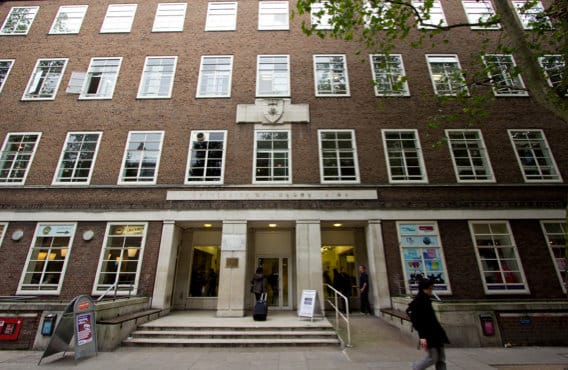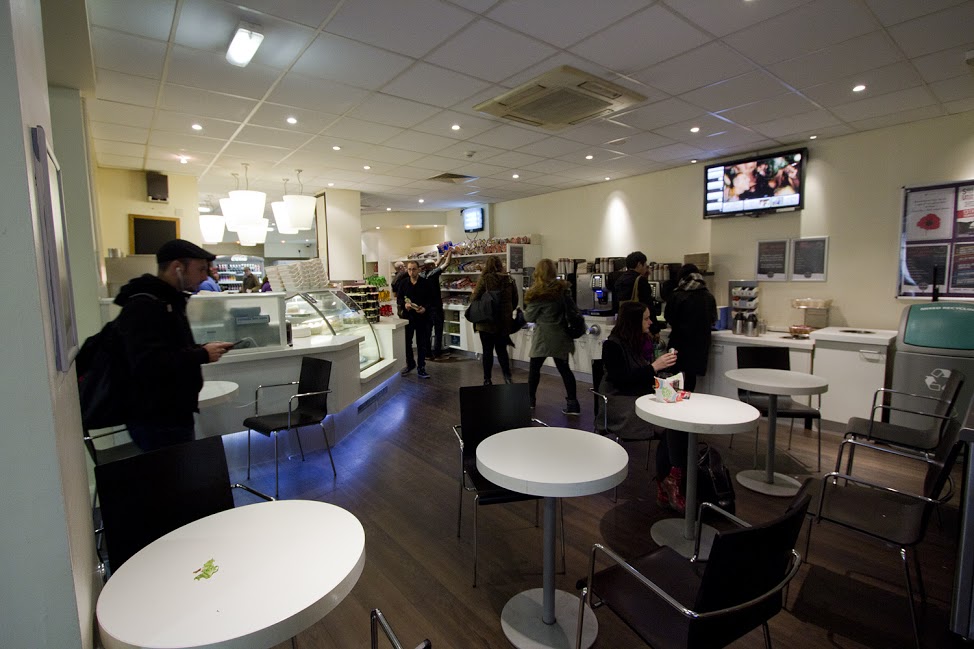Save ULU

 The unexpected UoL management decision to close University of London Union (ULU) has caused shockwaves across the university.
The unexpected UoL management decision to close University of London Union (ULU) has caused shockwaves across the university.
The union, which represents 170,000 students, will be replaced with a corporate student services centre on Malet Street from the 1st of August next year. The changes threaten many popular sports and societies at ULU, such as the football team, one of thirty across the university.
It also leaves some students, such as postgraduates at the Institute of Advanced Study, with no representation.
The gym, pool and bar and a number of other services are to be kept, but to cover their costs prices are likely to rise. The University will also refurbish the building next summer, and a planning group is surveying students about their ideas for the centre.
 The cafe, bar and other facilities will be run by the University management.
The cafe, bar and other facilities will be run by the University management.
SOAS Director Professor Paul Webley, who chaired this review board, and the previous one on the effectiveness of ULU, said, “If you think ULU’s good, you could give the money to ULU. That wasn’t what they decided but they could have.”
According to Peter Baran, Student Union General Manager, the extra £39,000 SOAS used to pass on to ULU ever year will be put into our own sports and societies and improving services at SOAS Students’ Union.
ULU’s problems began when five student union presidents from around London wrote to the University complaining about the poor quality of services. One college even refused to keep subsidising the body. Other students were only interested in the gym and the pool, but Ayman, who works in the ULU bar, said that students would lose their social hub, where they can “meet people from different unis.”
ULU were consulted about their future, “their prime pitch was about pan-London campaigning,” pointed out Professor Webley, “but there are 44, 45 universities in London, and the University of London is less than half of those.” It was impossible for ULU to represent all of the 400,000 students in London. Their solution, despite SOAS union’s request for reform and improved services, was to get rid of ULU entirely. It may be replaced with a campaigning group which would have to get subscriptions from individual student unions, with competing proposals coming from ULU and NUS.
Many students criticised the decision as undemocratic, with no students sitting on the review group. But turnout as the review group noted, is as low as 1%, bringing ULU’s democratic credentials into question. Elections were often uncontested and fail to generate interest across the different colleges.
In spite of this, SOAS Students’ Union passed a motion on the 10th October to support the “Save ULU” campaign and keep our union under democratic student control, even though last year’s sabbatical officers had refused to continue funding it.
But will this be enough to effectively protect students’ rights? “Students need representation” said Suzy, a postgraduate at SOAS. Nathaniel, studying Arabic and Development, added that ULU was “a headquarters where students can have their own opinions and put power to them.” Peter Baran was less enthusiastic; in his opinion, “The last decent London-wide campaign ULU ran was to get the student Oyster card, over ten years ago.”
 Fears have been raised that prices may rise.
Fears have been raised that prices may rise.
A big concern over the closure revolves over the future of the clubs and societies that ULU funds, with Daniel Cooper – Vice-President of ULU, principally concerned with campaigns and the clubs and societies department – pointing out that there has not yet been any public guarantees that the clubs and societies will continue to operate and be given funding. He feels there are a lot of questions around the closure- what will happen to the existing capital and assets of clubs? How will space and rooms be allocated for students to use? Is a student services centre compatible with student-led clubs and societies? These questions haven’t been answered, creating uncertainty and angst amongst the students that are involved.
ULU is fighting back on this decision. Maham Hashmi, the current Black Students’ Officer for ULU and student at SOAS explained that “currently, SU’s don’t have the capacity to cater for all the students we have. If ULU goes, even with the extra £40,000 or so, SOAS SU will burst at the seams.” Having a space for all students to meet, socialise and campaign is vital, and whilst ULU is set to become a centre for all UoL students, she also points out that the health centre for UCL has already been told it will be moving to the ULU building.
As the only London-wide union that campaigns for issues related to worker’s rights, housing and liberation. ULU has a long tradition of being the rallying point for student campaigns, such as the 2010 protest against rising tuition fees.
It is also a fundamental part of the cross campus campaigns regarding cleaner’s rights within higher education institutions, helping them to expand and collaborate.
The ‘Save you Union’ campaign took place on Wednesday 13th November in a protest against this decision, starting outside ULU at 1pm. This was not the only way to get involved though, with a petition against the closure circulated, an early day motion urging MPs to join the battle and officers at ULU trying to commit the University to a binding referendum over the closure at the end of this month. ULU might be closing, but not without a fight, and as Hashmi says, ‘it makes financial and political sense for ULU to open up and become a pan-London union.”
 Malet Street has been a hub of student protest for decades.
Malet Street has been a hub of student protest for decades.
The petition against the closure can be found at: https://www.change.org/en-GB/petitions/save-your-union-stop-the-management-takeover-of-ulu
Anyone who wants to be involved further, can email soas4ulu@gmail.com.
Tom King




